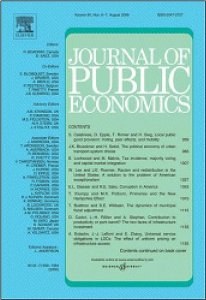
Gillet, J., Schram, A. and Sonnemans, J. (2009). The tragedy of the commons revisited: the Importance of group decision-making Journal of Public Economics, 93(5-6):785--797.
-
Affiliated authors
-
Publication year2009
-
JournalJournal of Public Economics
We use a laboratory experiment to compare the way groups and individuals behave in an inter-temporal common pool dilemma. The experimental design distinguishes between a non-strategic problem where players (individuals or groups of three) make decisions without interaction and a strategic part where players harvest from a common pool. This allows us to correct for differences between individuals and groups in the quality of decisions when testing for differences in competitiveness. Group decisions are either made by majority rule or unanimity. The results show that groups are less myopic than individuals (i.e., they make qualitatively better decisions) but that they are more competitive than individuals when placed in a strategic setting. The net result for groups deciding by majority rule is that they make less efficient decisions in the strategic game than individuals do. We are able to show that this is caused by the median voter departing from her original preference in early periods with a shrinking pool. When groups have to make unanimous decisions they start playing the strategic game more efficiently then individuals do, but they rapidly become more competitive with repetition of the game.